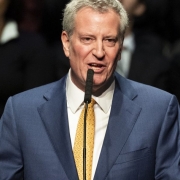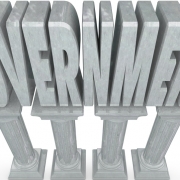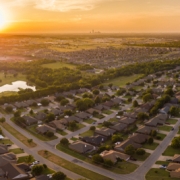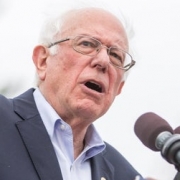The democratic nation state is always moving towards totalitarianism. There is no movement in the opposite direction. So said Anthony de Jasay in The State.
The State’s Goal Is Power.
He arrives at this somewhat depressing conclusion via an interesting route. He starts his inquiry with a question for all of us: What would you do if you were the State? This is not a book that worries about the origin of the State, or about its violence, theft and coercion, or whether there is a social contract. It tries to see the world from the State’s point of view.
The State has ends, or goals, just as we all do. After weighing up various alternatives as to what those might be, the author isolates one. The State’s end is power.
A Lot Of Power Is Used Up In Churning Benefits For Competing Interest Groups.
In a democratic set-up, the State is required to organize periodic electoral voting to maintain the pretense of the consent of the governed. Since they feel that the narrative of consent is important for their continued retention of power, they work hard at this task. Whichever of the State’s political parties has its hands on the levers at any point in time attempts a balanced bribery that promises benefits to sufficient interest group members to make them think they’ll get more than others, to the point of a 50.1% voting majority. De Jasay shows how, over time, the confiscation and redistribution math of the two parties becomes almost identical, and the 50.1% can oscillate from one party to the other, while the State remains in power at all times. In fact, there is as much churn as there is redistribution. The old are bribed with health care services and social security while the young are bribed with free or subsidized education, the workers get higher wages and benefits and the managers get infrastructure and government contracts, and the whole pudding just gets bigger and bigger.
In fact, the redistribution math becomes a burden for the State. The interest group recipients are never satisfied and keep demanding more. There turns out to be some democratic limits on the amount of economic production the State can comfortably confiscate before the populace becomes morose, sullen and potentially turbulent. The State, while becoming bigger and bigger as it pokes its fingers into more and more parts of the economy to keep the churn going, realizes at some point that it is spending all its effort on maintaining power, and none on what de Jasay calls discretionary power. After entitlements, there is no money left over for nation building, fighting foreign wars, landing on the moon and building grandiose buildings and monuments in the state capital.
Lest you should think this is all too cynical, de Jasay allows for the possibility that the State wants to use its power to help people and make their lives better. Even if they do, however, the same trends are going to bring them to the point we have now reached. The level of confiscation is hitting a ceiling, the redistribution funds are being eaten up in ever-growing entitlements, the State is hamstrung in funding its discretionary projects, and the people are becoming morose.
Even If Sincere, The State Will Become Frustrated With Its Burdens.
Worse, because of a lack of knowledge, intelligence and capability, many of the schemes the State devises to bribe the interest group voters go wrong. There are unintended consequences. There are economic busts, failed investments, and shoddy execution of what should have been magnificent programs. Think Green New Deal. Why such failure? This is where de Jasay introduces “confident innocence and uncomprehending sincerity”. People like Alexandria Ocasio-Cortez may be as innocent and as sincere as they claim to be, but their statist schemes are going to fall afoul of economic realities.
At some point, the State has a decision to make. The problem is clearly that political power resides with them but economic power does not. They can confiscate the fruits of production but they can’t produce. They can control the use of assets to some extent, but they don’t own them so their control has a limit. How long will they put up with this? They will tolerate it up to the point where their entire effort is spent on maintaining power and there is virtually no discretionary power left to them. In America, that point is fast approaching.
There’s Only One Place To Go.
So what happens next? State Capitalism. That’s the term de Jasay uses, although the rest of us might call it Socialism. The State must take ownership of the privately held capital assets if they are to progress any further – if power is to mean anything other than the drudgery of maintaining the entitlements of a morose and increasingly turbulent citizenry. There’s no glory in that. The State must take ownership of energy assets if it is to be able to pursue the glorious and progressive pathway to a carbon-free world. It must take ownership of cyber assets if it is to apply artificial intelligence and machine learning to develop a surveillance-based social credit system to ensure all the citizens behave the way they should. The State must take ownership of transportation assets if the right allocation of usage is to be achieved between bicycles and cars and buses and airplanes. The state must take ownership of financial assets if pesky booms and busts are to be managed and hedge fund owners are to be cut off as a source of competitive economic power.
We are not there yet. But it’s coming. The movement is in one direction, and it never reverses. Confident innocence and uncomprehending sincerity will accelerate it.













